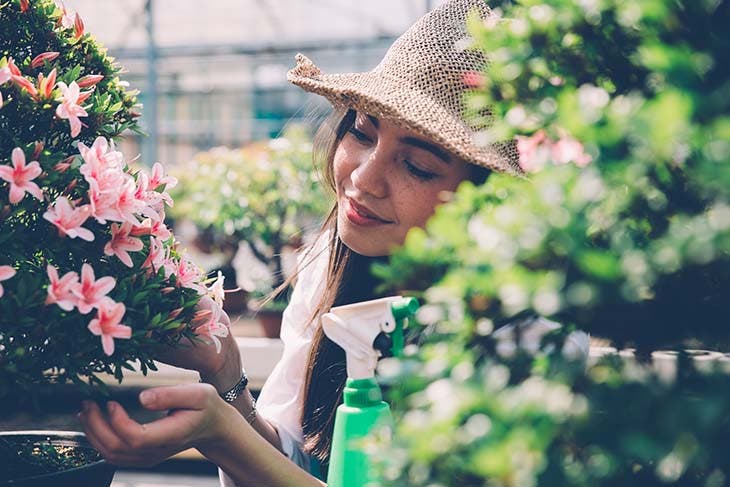Baking soda is a natural product renowned for its various uses. It can be used in household maintenance to clean, degrease and disinfect surfaces or to preserve the shine of laundry. This passepartout product is also popular for taking care of the skin and preserving its youth. But its uses don’t stop there. Indeed, baking soda is beneficial for your plants too. Find out what happens if you spray your plants with a mixture of water and baking soda.
Used in home and laundry maintenance or to take care of the skin, baking soda also has several virtues for caring for plants.
What happens when plants are sprayed with a mixture of water and baking soda?
Caring for plants – Source: spm
The baking soda is a natural fungicide, effective for preventively fighting fungi at the origin of diseases cryptogamic, but also to treat plants in case of infection. To prepare your natural fungicide, mix 4 teaspoons of baking soda with 4 liters of water. Transfer your solution to a spray and spray on the foliage of your plants, in order to limit the proliferation of mushrooms. This treatment can be used to treat plants with mildew or powdery mildew. These fungal diseases thrive in the presence of moisture, and can cause your plants to dry out and wilt. In case of infection, act quickly to avoid contamination of other plants.
Note that overdosing baking soda does not speed up the treatment of plants, but it will burn the foliage of your plants. It is therefore recommended not to exceed a dosage of one teaspoon of baking soda per liter of water.
To make your fungicide more effective natural, you can add to your oil mixture. This allows the baking soda to adhere better to the foliage of the plants. To do this, mix 3 teaspoons of horticultural oil or olive oil, with a teaspoon of baking soda in a liter of water. Spray your solution on the leaves of your infested plants, as soon as the first symptoms appear. Note that this mixture can also be used to fight against aphids and scale insects which ravage plants.
What are other uses for baking soda in the garden?

Take care of plants – Source: spm
In addition to preventing and treating fungal diseases that can affect your plants, baking soda has other uses in the garden. It can, in fact, be used to weed the paths naturally. To do this, simply sprinkle a little baking soda on the weeds, in order to eliminate them and also prevent their regrowth.
This economical and biodegradable product can also be used as a natural repellent, in order to protect your plants from harmful pests, such as ants, cockroaches, slugs and even rabbits. To do this, sprinkle the baking soda on the ground, taking care not to get it on your plants.
Known for its deodorizing properties, baking soda can help you to deodorize compost. The latter is composed of organic waste and mineral matter, which are intended to fertilize the soil. However, the maceration of this waste leads to bad smells, especially in summer. To avoid this inconvenience, add a little baking soda to your compost.
Baking soda is also useful for stimulate the growth of roses and promote their flowering. To do this, mix in 4 liters of water, a teaspoon of baking soda with 5g of Epsom salt. The latter is effective in stimulating the growth of plants, and promoting their flowering or fruiting, thanks to its magnesium content. Spray this liquid fertilizer on your roses, in the spring, when the leaves begin to open, and a second time, when the roses begin to bloom.
Thanks to baking soda, you will protect your plants from the parasites and fungi that ravage them, in order to ensure their healthy growth and promote their flowering, without resorting to chemical products.
Read also329770 How to have beautiful plants at the end of winter with baking soda?
[ad_2]
Originally Appeared Here